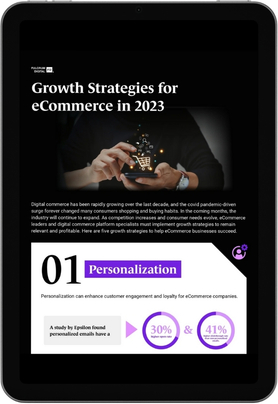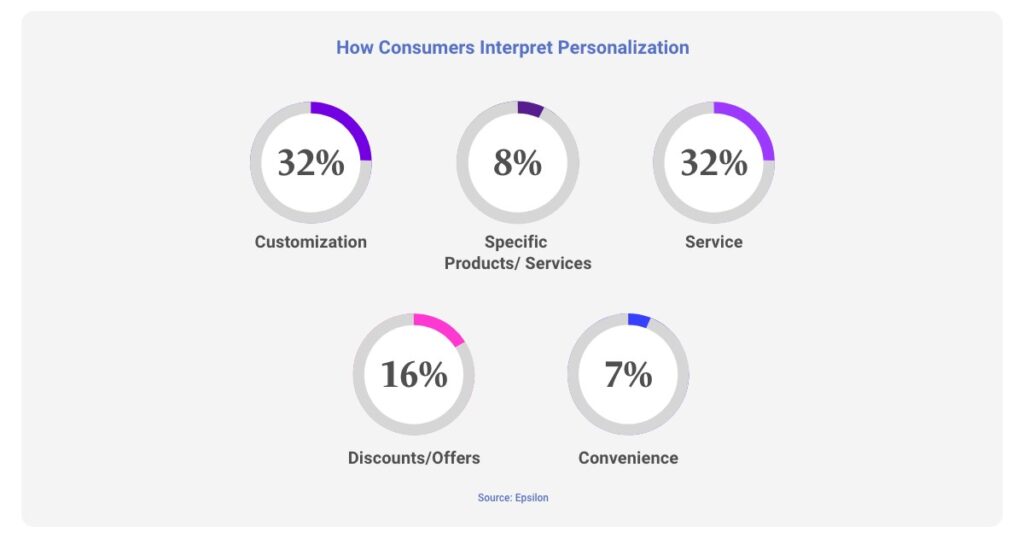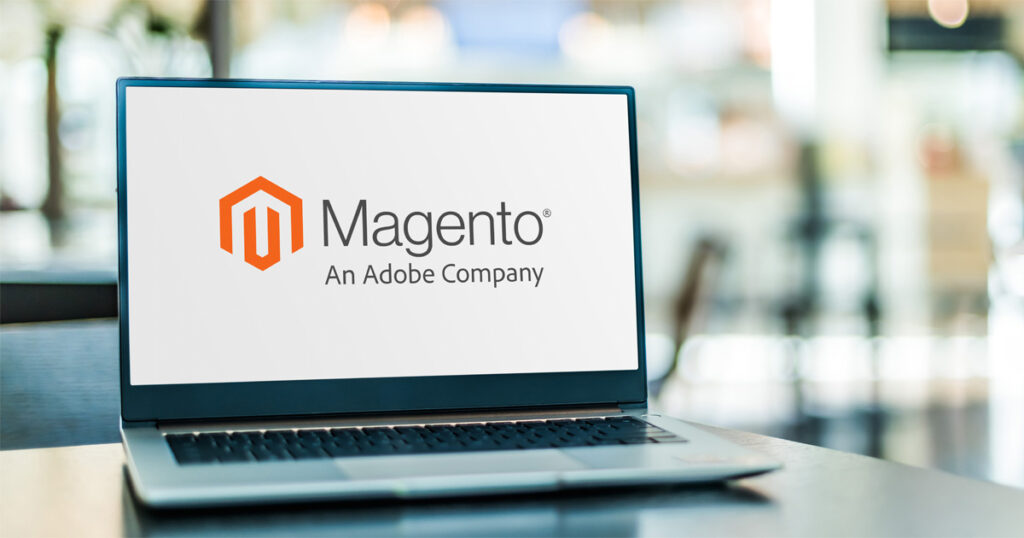Personalization has revolutionized eCommerce, providing unique buying experiences to enhance customer engagement and drive business growth. As eCommerce continues to expand and evolve, personalization has become one of the most critical elements in online shopping.
Personalization is more than just a buzzword; it is a proven way to increase customer engagement, retention, and lifetime value. Consumers today want to feel special, valued, and heard. They expect brands to go above and beyond with every shopping encounter; those businesses that don’t personalize experiences risk losing customers to competitors who do. In this blog post, we explore the power of personalization in eCommerce and what to expect from the industry in the future.
The Benefits
Personalization in eCommerce offers numerous benefits for both businesses and customers. For businesses, it drives customer loyalty, improves conversion rates, and increases revenue. Personalization also helps businesses stand out in a crowded market, as customers are more likely to choose brands offering customized experiences. Personalized product recommendations, for example, can lead to a 29% increase in average order value.
Global cosmetics giant Sephora, for example, utilizes personalization through its Beauty Insider program. The retailer collects customer preferences and purchase history to provide personalized product recommendations, exclusive offers, and tailored beauty tips. This personalization strategy enhances customer engagement and loyalty, encouraging repeat purchases.

GROWTH STRATEGIES FOR ECOMMERCE IN 2023
Learn the latest growth strategies to stay relevant and profitable in the dynamic landscape of digital commerce.
Similarly, Starbucks, the American multinational coffee chain, incorporates personalization through its mobile app and loyalty program. The app tracks customers’ purchase history and preferences, allowing them to easily customize and order their favorite drinks. Starbucks also sends personalized offers, rewards, and recommendations based on individual preferences, enhancing customer loyalty and driving repeat visits.

The Impact
Personalized eCommerce creates a sense of trust between businesses and consumers. When consumers feel a company cares about their needs and preferences, they are far more likely to trust that business with their personal information, which enables brands to tailor their customers’ buying journeys. It creates a more enjoyable shopping experience and saves customers’ time by showing products relevant to their interests rather than forcing them to sift through a sea of potentially irrelevant options.
According to a recent study, 91% of consumers are likelier to shop with brands extending relevant offers and recommendations. Furthermore, businesses implementing effective personalization strategies see a 20% increase in average sales. (Source: Accenture).
a) Conversion Rates: Research shows personalized product recommendations can boost conversion rates by as much as 150%. By leveraging customer data and preferences, eCommerce platforms can tailor product suggestions, leading to higher conversion rates and improved customer experiences. (Source: BigCommerce).
b) Customer Engagement: Personalized content drives engagement. Brands that utilize personalization techniques in their email marketing campaigns, for example, can gain a remarkable 41% increase in email click-through rates. Furthermore, 80% of consumers are more likely to do business with companies offering customized experiences. (Source: Markettailor).
c) Retention and Loyalty: Personalization fosters customer loyalty. According to a survey, personalized shopping experiences result in 60% of consumers becoming repeat customers. Businesses can establish long-term relationships and increase customer retention by delivering relevant recommendations and offers. (Source: Segment).

Future Expectations and Trends
a) Artificial Intelligence (AI): The future of personalization lies in AI-powered technologies. Machine learning (ML) algorithms can analyze vast amounts of customer data to provide real-time personalized experiences across multiple touchpoints. Chatbots, virtual assistants, and customized chat interfaces will become standard features in eCommerce, enhancing customer support and driving conversions.
b) Omnichannel Personalization: With the rising popularity of mobile devices, personalization must extend beyond traditional platforms. Future expectations involve seamless personalization across various channels, such as mobile apps, social media, voice assistants, and physical stores. Integrated customer profiles will enable brands to offer consistent and personalized experiences throughout the customer journey.
c) Enhanced Personal Data Protection: As personalization relies on customer data, ensuring data privacy and security is paramount. Future regulations and technologies will focus on safeguarding personal information while providing customers with control over their data. Brands prioritizing data protection and transparency will build trust and strengthen customer relationships.

Conclusion
Personalization has become an essential strategy for eCommerce success. Personalization is no longer a luxury in eCommerce; it is a necessity. Businesses that fail to provide personalized experiences risk losing customers and revenue. While personalization has challenges, the industry is evolving rapidly, with new technologies and techniques emerging daily. As the industry evolves, AI/ML, omnichannel personalization, and enhanced data protection will shape the future of eCommerce personalization.






